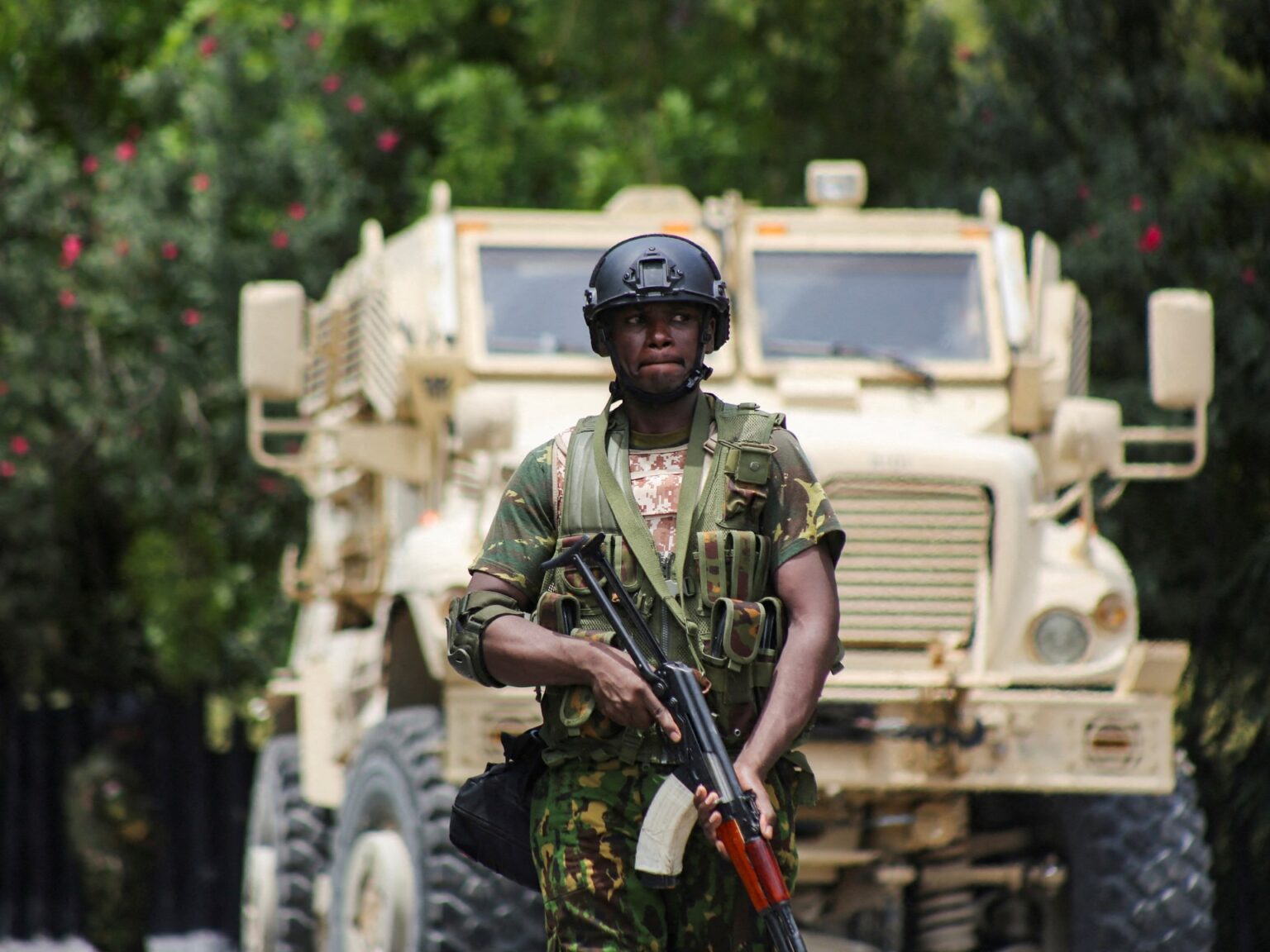The Kenyan-led force is fighting back after a report says nearly 20 officers have resigned from the force over unpaid salaries.
A Supported by the United Nations The security mission in Haiti, led by Kenyan forces, has denied reports that some of its officers have gone months without pay.
In a statement On Friday, the Multinational Security Support Mission in Haiti (MSS) said it “categorically refutes” reports that the officers have not received their salaries for three months.
“All MSS staff members have received their salaries, including monthly allowances, and no MSS staff has tendered their resignation as alleged,” the statement said.
“MSS agents remain highly motivated and fully committed to supporting the Haitian National Police. [HNP] in the conduct of decisive operations aimed at dismantling gang networks and restore stability.
The allegations of unpaid salaries come as the MSS struggles to make an impact on the situation in Haiti, where armed gangs have sparked a wave of violence. wave of violencedevastating civilian life and destabilizing the country.
The UN estimates that up to 85 percent of the capital Port-au-Prince has fallen under gang control. More than 700,000 people are displaced across Haiti due to violence.
Reuters news agency reported in an exclusive article on Friday that nearly 20 Kenyan officers resigned from the MSS over late payments and poor working conditions, citing three sources who spoke on condition of anonymity.
In its statement, MSS said Reuters had not contacted the mission for comment before publication, but a spokesperson for the news agency said Reuters stood by this story.
The mission, already highly scrutinized due to the poor record of foreign interventions in Haiti, has made little progress since arriving in the Caribbean island country in June.
The difficulties linked to financing have been present from the start. Although initially envisioned as a police mission composed of 2,500 people, Kenya has only sent about 400 officers since June.
Questions have also emerged around the stability of funding from the United States, the mission's main financier.
Although US President Joe Biden's administration has encouraged the Kenyan-led efforts, it is unclear whether this support will continue in 2025, when Biden will be succeeded by President-elect Donald Trump.
In response to the lack of funding, officials in the United States and elsewhere have pushed the United Nations to launch a peacekeeping mission in Haiti.
But a previous U.N. peacekeeping mission in the country ended in 2017, amid protests over its role in the reintroduction of cholera into the country and allegations of sexual assault.
Security in Haiti has deteriorated since the assassination of former President Jovenel Moise in 2021. But even with the presence of Kenyan forces, gang violence has continued to grow and the country continues to struggle to establish stable governance .
Haiti has not held federal elections in years, a fact that gangs have seized on to claim legitimacy.
Additionally, last month a transition council tasked with restoring democracy to Haiti fired interim Prime Minister Garry Conille after just six months in office. The move sparked further questions about corruption within the transitional government – and the future of Haiti's leadership.
#Haiti39s #multinational #police #mission #denies #reports #unpaid #salaries #Conflict #News
News ,












